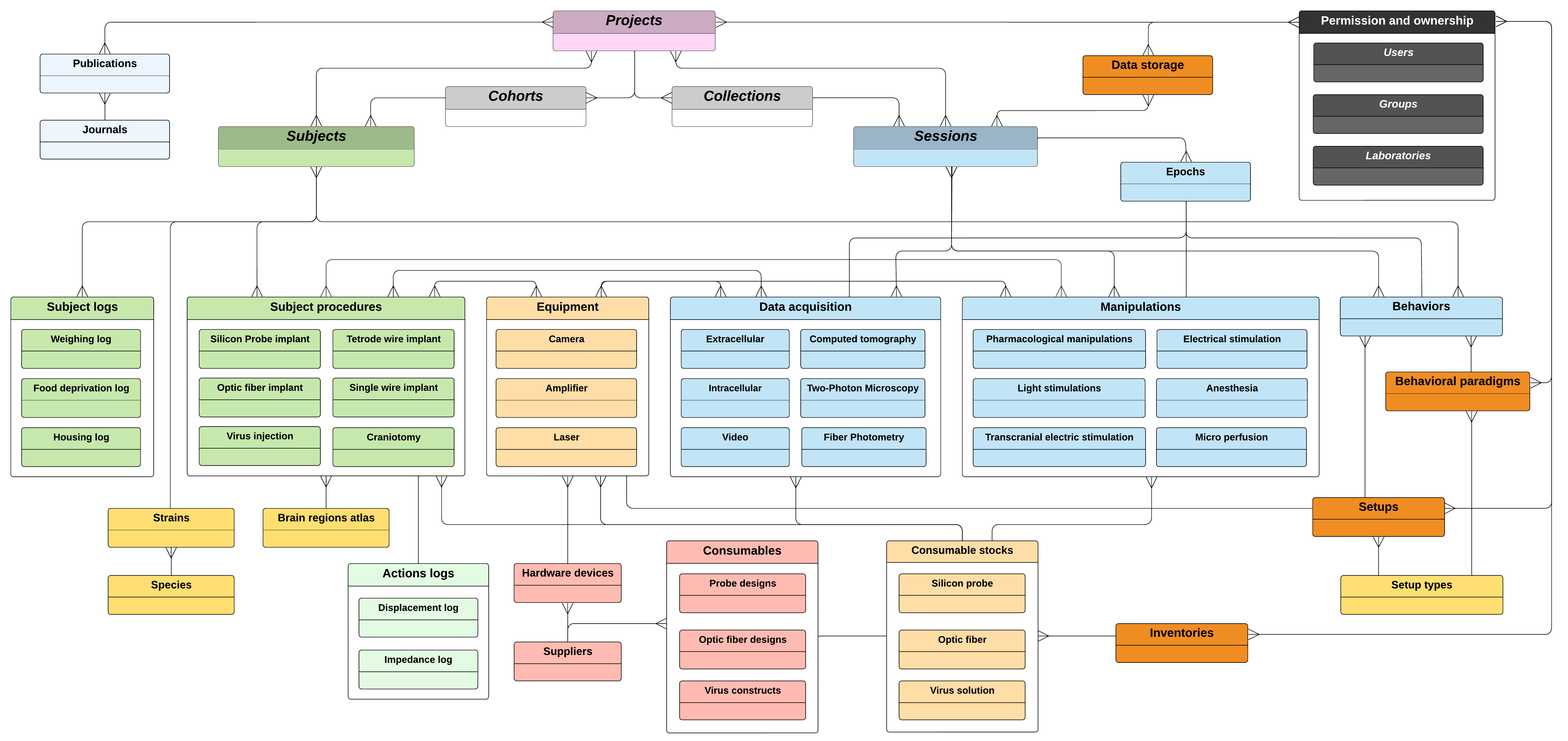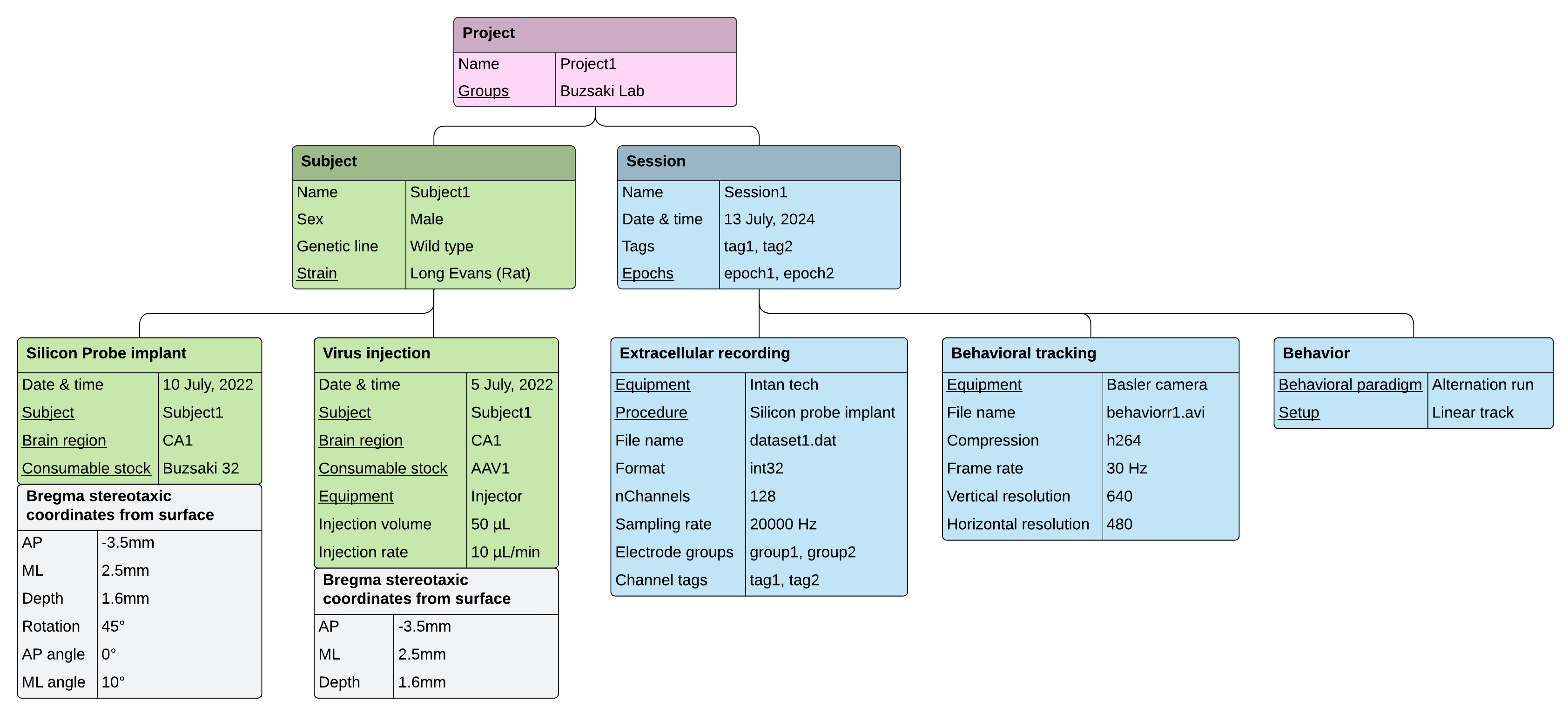Data model
BrainSTEM is built upon a relational data model, as shown in the relational graph above. Click the graph to see it in full size.
Organization of the models
The model is structured into the following main categories:
- Projects: Core model for organizing research efforts.
- Subjects: Representing the organisms or entities being studied. Includes related concepts like Procedures, Subject Logs, and Cohorts.
- Sessions: Detailing experimental sessions. Includes related concepts like Behaviors, Data Acquisition, Manipulations, and Collections.
- Personal attributes: Models for lab-specific elements such as Setups, Inventories, Behavioral Paradigms, and Data Storage.
- Resources: Representing materials, equipment, and entities involved in research, including Consumables, Hardware Devices, and Suppliers.
- Taxonomies: Standardized vocabularies and classification systems for neuroscience research.
- Dissemination: Capturing information related to the publication and sharing of research findings.
- Users: Managing authentication, authorization, and organizational structure on the platform.
- Schemas: Defining the structure and organization of data components.
Expandability, permissions, schemas
The data model is designed for expandability with structured permissions and standardized schemas to support flexible data integration.
- Expandability: The model can incorporate new methods, techniques, data types, resources, and taxonomies while maintaining a standardized structure.
- Permissions implementation and inheritance: Permissions are applied at the object level, inheriting from users, groups, projects, and personal attributes.
Elements of the graph
Tables represent models, while lines represent connections between them. A fork indicates a one-to-many relationship, while forks on both ends indicate a many-to-many relationship. Some models, such as modules and consumables, have subtypes with shared relationships and fields but additional type-specific details.
- Projects serve as a primary organizational unit.
- Subjects are linked to Procedures, Subject Logs, and Cohorts. They are also described by their Strain (Taxonomy).
- Sessions are linked to Behaviors, Data Acquisition, Manipulations, and Collections. They can also link to Data Storage (Personal Attribute).
- Personal Attributes like Setups (containing Equipment) and Inventories (containing Consumable Stocks) define lab-specific configurations.
- Resources like Consumables, Hardware Devices, and Suppliers represent tangible items or entities.
- Taxonomies provide standardized classifications (e.g., Species, Brain Regions).
- Dissemination models like Publications link back to Projects.
- Permissions are managed through Users and Groups and apply throughout the structure.
Example usage of the flexible modular design
The graph below illustrates how the data model can be applied to an extracellular recording session during a behavioral experiment involving a rat. Subject-related models are highlighted in green, while session-related models are in blue.

